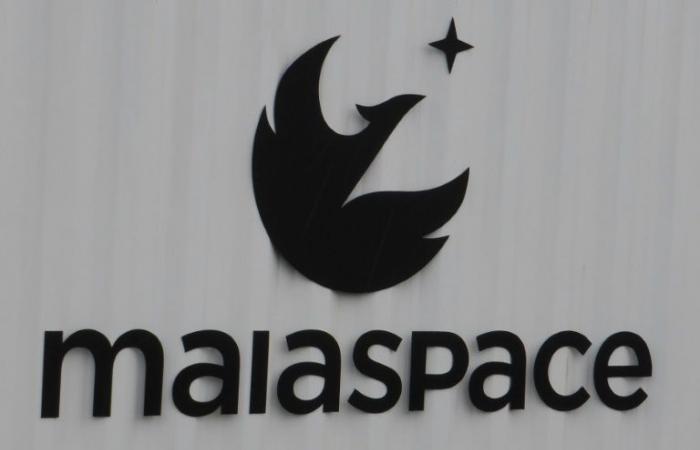In the Normandy forest, the French group MaiaSpace is entering the decisive phase of the development of the first reusable European rocket, the first launch of which is planned for 2026, trying to make up for a decade of delay in the face of Elon Musk.
“Europe has fallen behind because the reuse technologies that are mastered across the Atlantic are not yet here,” Yohann Leroy, executive president of MaiaSpace, told AFP. “However, the battle is not lost,” he adds in front of a facility where mechanical stage separation tests of the Maia rocket are carried out in Vernon, 80 kilometers west of Paris.
It is the first stage of this rocket intended to place institutional and commercial satellites in orbit and developed by MaiaSpace, a subsidiary of ArianeGroup, which is the main reusable element.
It is designed to return to a barge at sea after launch, using technology similar to that used by Elon Musk’s SpaceX since 2015 with the Falcon 9, which currently conducts several launches per week.
MaiaSpace is banking on around twenty Maia shots per year around 2031-2032, a difference in scale which does not discourage Yohann Leroy who must also compete with other major players like Rocket Lab or Relativity Space. China also has reusable launchers.
“The launchers that SpaceX is developing do not meet all needs,” particularly when it comes to sending a heavy satellite to a specific orbit, he argues.
Unlike SpaceX whose Starlink constellation satellites represent the majority of the order book, which justifies the frequency of launches, “MaiaSpace does not have the ambition to develop its own constellation project,” he also explains.
Nevertheless, by making access to space commonplace and lowering its cost, the American billionaire has disrupted the satellite market and pushed Europe to question its space development model based on public funding.
– Work “differently” –

On the website of the French group MaiaSpace, in Vernon in Eure, September 21, 2023
Mathieu RABECHAULT – AFP/Archives
In 2014, when the development of Ariane 6, the ArianeGroup launcher capable of carrying heavier loads than Maia and which successfully completed its maiden flight in July, was launched, Europe considered the economic model unviable. reuse.
Powered by ArianeGroup’s Prometheus engine which runs on a mixture of liquid oxygen and bio-methane, more environmentally friendly than kerosene, Maia’s first stage could be reused up to five times compared to at least ten for SpaceX.
Initially scheduled for the end of 2025, Maia’s first flight was postponed after the French group was awarded the Russian Soyuz launch pad in Kourou, French Guiana, in September, whose launches were interrupted after the invasion of Ukraine by Russia in 2022.
MaiaSpace is preparing to adapt this launch pad for its needs while conducting tests in Vernon.
In a workshop dating from the 1970s, sections of the first floor are assembled. Two kilometers away, on a confidential site in the middle of the forest, we simulate the filling, emptying and pressure management in the tanks of the second stage prototype or the separation between the stages.
MaiaSpace, which started two years ago with 20 employees, today has 230 of 14 different nationalities, more than half of whom come from the non-space sector.
The company also employs around “30%” women, a rate higher than that of women graduates from engineering schools, and employees of all ages.
With this diversity, MaiaSpace hopes to “avoid beginner’s mistakes” while adopting “different” development logics, underlines Mr. Leroy.
Going fast is “a necessary condition for survival” in the face of competition”, even if it means shortening cycles and testing the first imperfect rocket in “suborbital flight”, notes the manager.
Although a subsidiary of ArianeGroup, MaiaSpace calls itself “autonomous” because it is financed by loans from Airbus and Safran, shareholders of its parent company. This allows it in particular to be “freed from the constraint of geographical return” established by the European Space Agency to ensure equitable distribution of industrial contracts and economic benefits between the different Member States which participate in the financing of space projects.
Peer Olga NEDBAEVA / Vernon (France) (AFP) / © 2024 AFP






